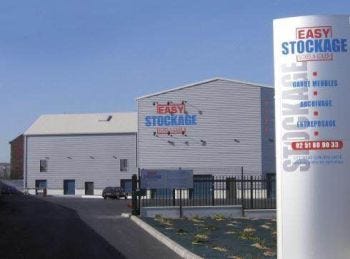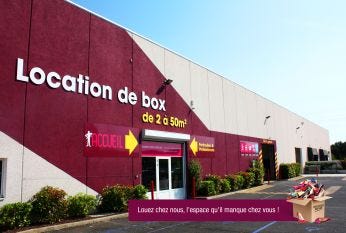Self-Storage Goes 'Back to the Future' in Europe
Self-storage is still in in its infancy in many countries. Is Europe the next frontier? The author examines key issues for foreign investors and offers advice for gathering information on this market.
January 13, 2017
By Robert James Oliver
When comparing the self-storage industry in Europe to that of the United States, it’s kind of like the movie “Back to the Future”—their industry now is like ours was back in the 1980s. That said, many may be wondering if there’s opportunity there for the U.S. investor. Is Europe the next frontier?
The accompanying table shows statistics from a 2015 industry report by the Federation of European Self Storage Associations (FEDESSA). Post the British exit (Brexit), there were 422 million people in the European Union (EU) vs. 321 million in the U.S. Now look at the more telling number of storage units per million of population and the answer is clear. I've left out several EU countries for the sake of brevity, but the average in post-Brexit Europe is 3.7 vs. 163 in the U.S.
Is there enough demand for self-storage in Europe? I asked Ron Gerow, a native of Upstate New York and a partner in Easy Stockage in Nantes, France. “I‘ve been an owner of Easy Stockage for 10-plus years and see expansion possibilities everywhere on the continent,” he says. “Interest rates are attractive, lease-up and sales curves are slower; but the up and down swings are less and the risk is lower. As well, the economy in Europe isn’t as bad as they say. There are lots of real estate projects out there, and self-storage works."
With low interest rates and a strong dollar relative to the Euro, the storage investment climate is good. “You may pay less than 1 percent if you’re on a variable rate, and less than 2 percent if you have a 20-year loan,” says Gerow’s partner, Jean-Michel Bouché, who’s based in France. “Basically, money has become almost free. Why wouldn't American investors feel very welcome? Plus the Euro/dollar is at an attractive rate, so for the U.S. investor, it’s like getting in at the bottom.”
From a demographics perspective, there are the common demand drivers:
Amazon, eBay and other large online retailers are expanding their presence in Europe, and the populace consumes more and more.
College students are the same everywhere, looking for places to put their stuff between semesters.
European cities and villages house old buildings with cramped retail space, sending small businesses scrambling to find storage for their wares.
As anywhere else, divorce is as big a driver of storage rentals in Europe. One gentleman I spoke said he rented a storage space in Germany following his divorce and hasn't been to see it in more than 10 years. He just keeps paying the monthly rent!
Advice for Investors
Investors interested in self-storage in Europe should seek to work with a company that has a good track record and U.S. partners or senior managers, if possible, Gerow says. He also suggests they hire a competent international real estate adviser to guide them through the legal, language, tax and bureaucratic issues.
Taxes are a common concern when it comes to investing abroad. For insight to this, I went to Alexis Martin, attorney, partner and head of the tax department at international accounting firm Grant Thornton in Paris. He says the three main forms of tax in Europe are the value-added tax, which is similar to U.S. sales tax; corporate income tax; and local business taxes that would be paid by the company or subsidiary company if an investor decided to open an official corporate presence in Europe. But what about the individual investor who buys a share of an existing company?
 "Taxes are normally levied on dividends [withholding tax], paid to non-residents by French companies at a rate of 30 percent,” Martin says. “The rate could be reduced to zero under certain conditions for dividends paid to U.S. residents. In addition, a 3 percent charge is also applied on dividends payments."
"Taxes are normally levied on dividends [withholding tax], paid to non-residents by French companies at a rate of 30 percent,” Martin says. “The rate could be reduced to zero under certain conditions for dividends paid to U.S. residents. In addition, a 3 percent charge is also applied on dividends payments."
How about offshore tax funds to shelter investments? This is an area that’s under scrutiny and should be approached only with the counsel of a highly trained, qualified professional. Wilton McDonald II, head of AFA Legal Resources in the Cayman Islands and an attorney in New York, British Virgin Islands and Jamaica, offered his advice. He’ll attest to the difficulty of avoiding all taxes by using an offshore trust, but a Cayman STAR Trust (Special Trust Alternative Regime) is “a proven wealth management tool for U.S. persons and may lead to more optimal tax-deferral solutions," he says. Remember to consult with your tax adviser before making any decisions, as each person's situation is unique.
Getting Info
If investing in European self-storage sounds interesting, you’ll likely want more information. Start by seeking competent advice from someone who has experience abroad. An international real estate firm is a good start. Look for a company with solid industry connections. It should be able to provide personalized service and a team of specialists to guide you. Plus, many U.S. real estate companies have a global presence and often have self-storage advisory departments.
 Also speak to an international tax adviser at one of the large accounting firms. These companies always have professionals in the U.S. from a large number of EU member countries specifically to guide U.S. companies and individuals doing business in Europe. If you’re considering the use of offshore tax regimes to defer tax payments, consult an expert with the ability to register the funds in the appropriate domiciliation. The FEDESSA website offers a wealth of information on this topic.
Also speak to an international tax adviser at one of the large accounting firms. These companies always have professionals in the U.S. from a large number of EU member countries specifically to guide U.S. companies and individuals doing business in Europe. If you’re considering the use of offshore tax regimes to defer tax payments, consult an expert with the ability to register the funds in the appropriate domiciliation. The FEDESSA website offers a wealth of information on this topic.
Finally, go see for yourself. Don't be afraid of the language barrier. Many people in the European storage industry speak English or have senior people who do. They’ll likely also have a competent adviser who can make connections for you. There are also a number of U.S.-based consultants with experience in self-storage abroad.
In many European countries, the industry is still in its infancy. While investing in storage in another country comes with challenges, it can also be a wonderful opportunity for the intrepid entrepreneur.
Robert James Oliver is a real estate professional with more than 30 years of experience. He’s CEO of Mondream, a global real estate asset-management and advisory firm with offices and partners in Luxemburg, New York and Paris. He’s also a professor of international real estate management in the master’s program at Sciences-Po in Paris, and a professor of international real estate finance in the master’s program at INSEEC Business School, also in Paris. For more information, e-mail [email protected]; visit www.mondream.com.
You May Also Like





